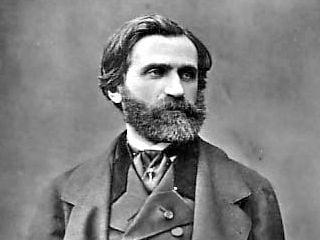
Florence Foster Jenkins was the worst opera singer in history.
His life can be counted as a great comedy, as the staging of a great whim. She can also be interpreted as a pioneer, someone who was ahead of her time more than eighty years: someone who sought to be famous and achieved it without any talent. Or with one but huge one: his lack of sense of ridicule.
What she was doing was so bad that it generated fascination. The audience came to their presentations trying to understand, to see how the derision was consummated night by night, so that they could freely mock their lack of aptitude. She enjoyed the attention, being able to have a claque to fulfill her whim.
Florence Foster Jenkins was born in Pennsylvania in 1868. His father was a renowned lawyer and landowner. Florence studied piano from a very young age. She liked to play for her mother's friends and even managed to appear at the White House when she was seven at a children's concert in front of President Rutherford Hayes. She was a child prodigy who amazed audiences. He gave concerts in different places in his country. When he finished school he wanted to go to study music in Europe. But her father wouldn't let her: a young woman from high society wasn't traveling around. She was supposed to get married, have children, start a family. He obeyed with speed not to fulfill his father's wish but to escape from him. At 17 she married Dr. Frank Thorton Jenkins, a 33-year-old doctor. But the marriage lasted barely a year. Her husband gave her syphilis and she didn't forgive him. He quit and never spoke to him again. Florence went to live in New York with her mother, who had also left her husband, Florence's strict father who, disgusted by the impromptu wedding, had withdrawn all financial support from her.
The young woman had arm injuries and her potential career as a pianist was frustrated. He began to give piano lessons. With what her students paid, she earned her living.
In 1909, when he was forty years old, he changed his life. She began a relationship with an actor almost ten years younger than her, St. Clair Bayfield. His biographers don't dare to define that link. Some speak of courtship, others of friendship or of relationship of mutual convenience; many believe that it was never sexually consummated. But the decisive event that year was the death of his father. Florence finally had a real profession: heiress.
With the money he received, he decided to fulfill his dream. To be a star in the music world. He didn't care about his age. The injury to his arm (due to syphilis and its aggressive and poor treatment) did not allow him to play the piano. Therefore he devoted himself to singing. She took lessons with the best soprano of her time and prepared her voice. He went to good teachers. Everyone accepted his money at first, but at some point they had to tell him the truth: he lacked all vocal capacity, his musical hearing was null. His voice hurt and he was a prodigy of detune: he never got a note right. Florence tried to sing with technique, beauty and feeling but from her throat only dissonant laments came out, pitiful howls.

He joined several music clubs that were in vogue at the time. Exclusive societies of music lovers that promoted great performers and composers and organized exclusive performances. After joining several, making herself known in the high society of New York and understanding how they work, Florence founded her own club: the Verdi Club, in tribute to the Italian composer. Very soon it had hundreds of refined partners and became the great reference in the city.
Her partner, St. Clair Bayfield, a failed Shakespearean actor, who had been raised to become a nobleman but who after disastrous family business was ruined. Bad experiences in the theater ended up depositing him in New Zealand where he worked as a farmer. When he crossed paths with Florence, he saw that she was his chance to have the well-to-do life that he was educated to but had never been able to enjoy.
A fundamental clarification should be made here. The opera singers in the great divas of their time. The admired and desired women, those who garnered all the attention. They occupied the place that would later be held by the great stars of Hollywood and sports idols. And Florence, why not, wanted to be one of them.
At the Verdi Club, he made his first public performance. The result was embarrassing. At first people didn't know if it was a joke, an elaborate parody or the biggest embarrassment in the history of the show. Florence was inconceivably bad and incompetent. There were those who had to escape from the hall so that their laughter would not be offensive.
She didn't care. And every year he made his presentations in an exclusive hotel. His favorites were Mozart, Bach and even his own compositions.
He also worked as patrons of young (and true) lyrical talents. Their support was constant.
He liked to create his own wardrobe. It was always ostentatious and excessive. That completed the staging with the ampullous gestures and the failed voice.
One of the big questions in Florence's story is what she thought about her qualities as a singer. Were you aware of your lack of capacity? Was it all a big joke?
One of his biographers argues that one of the manifestations of syphilis was tinnitus and the resulting hearing problems. And he blames the disease for his impossibility for tuning.
She could not ignore that it had become a kind of guilty consumption, that the public came to her performances as one who goes to a comic show. They laughed at her. But he didn't seem to care. If it was all about a parody, a great mockery, he played his role perfectly. She was always seen blended into her role.
For years he was urged to perform at Carnegie Hall, the great hall in New York. She said she wasn't ready yet. In 1944 he finally accepted.
As soon as the event was known, the city experienced a kind of fever. The Carnagie had the longest queues in its history to get tickets. They sold out after a few hours. The presentation was apotheotic. At least for Florence. Her striking dress (tulles, wings and a crown) and flowers in her arms that she threw to the audience who applauded to rage. Some attendees collected the flowers from the stalls and gave them back to them for her to throw them once more. It was several minutes. It was his big moment, the pinnacle of his life.

During the presentation, the audience did not behave as in the private and controlled functions that he did in his club or in his mansion. They were unknown and as in every crowd the contagion was fast. The laughter almost didn't let his grub performance be heard. There were screams, howls, rude screams, whistles and also applause. Florence seemed to enjoy that the focus was on her.
The New York Times refused to review the presentation. Another city newspaper said it was “the biggest mass joke in New York history. Mrs. Florence can sing anything. Fewer musical notes, of course.”
There were those who claimed that Florence justified that the whistles and laughter came from a group of infiltrators that her enemies had planted in the public. And that he was disgusted by the bad reviews of the newspapers.
Others say that when he came down from the stage, happily, he said: “They say I can't sing, maybe. But it's clear that I've sung all my life.” We prefer to believe, without foundation other than illusion, this version. He was 76 years old and had fulfilled the great dream of his life.
So much so that it seemed that at that moment he gave up all desire. Two days later she had a severe coronary problem and was admitted. He no longer left the hospital where he died a month later.
Florence Foster Jenkins had already achieved what she wanted: to be remembered, immortality.
He didn't care how.
KEEP READING:
Últimas Noticias
Debanhi Escobar: they secured the motel where she was found lifeless in a cistern
Members of the Specialized Prosecutor's Office in Nuevo León secured the Nueva Castilla Motel as part of the investigations into the case

The oldest person in the world died at the age of 119
Kane Tanaka lived in Japan. She was born six months earlier than George Orwell, the same year that the Wright brothers first flew, and Marie Curie became the first woman to win a Nobel Prize

Macabre find in CDMX: they left a body bagged and tied in a taxi
The body was left in the back seats of the car. It was covered with black bags and tied with industrial tape
The eagles of America will face Manchester City in a duel of legends. Here are the details
The top Mexican football champion will play a match with Pep Guardiola's squad in the Lone Star Cup

Why is it good to bring dogs out to know the world when they are puppies
A so-called protection against the spread of diseases threatens the integral development of dogs




